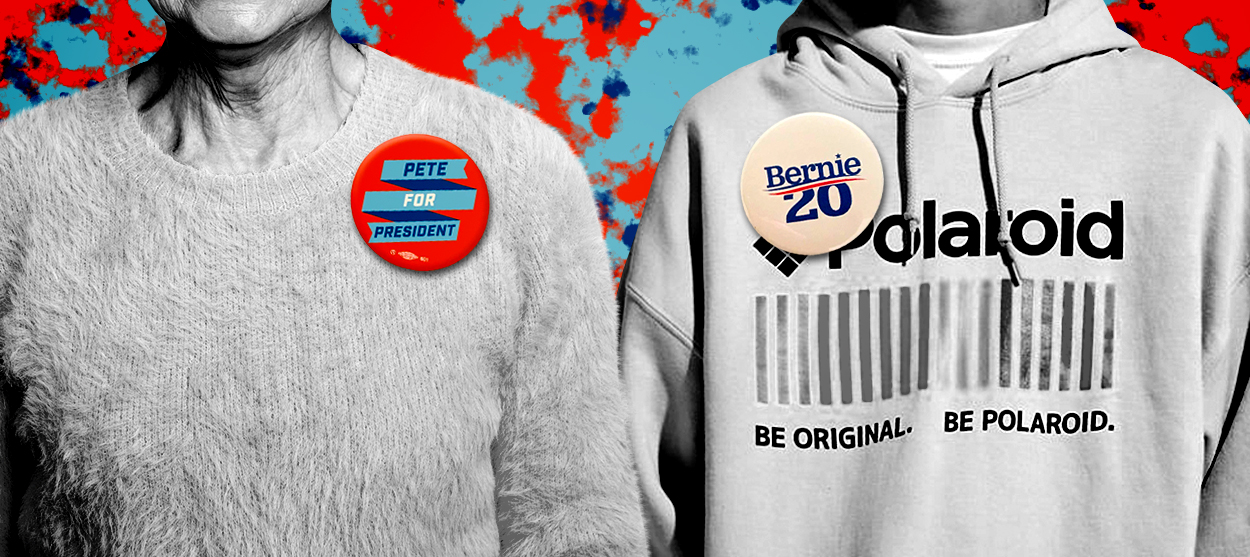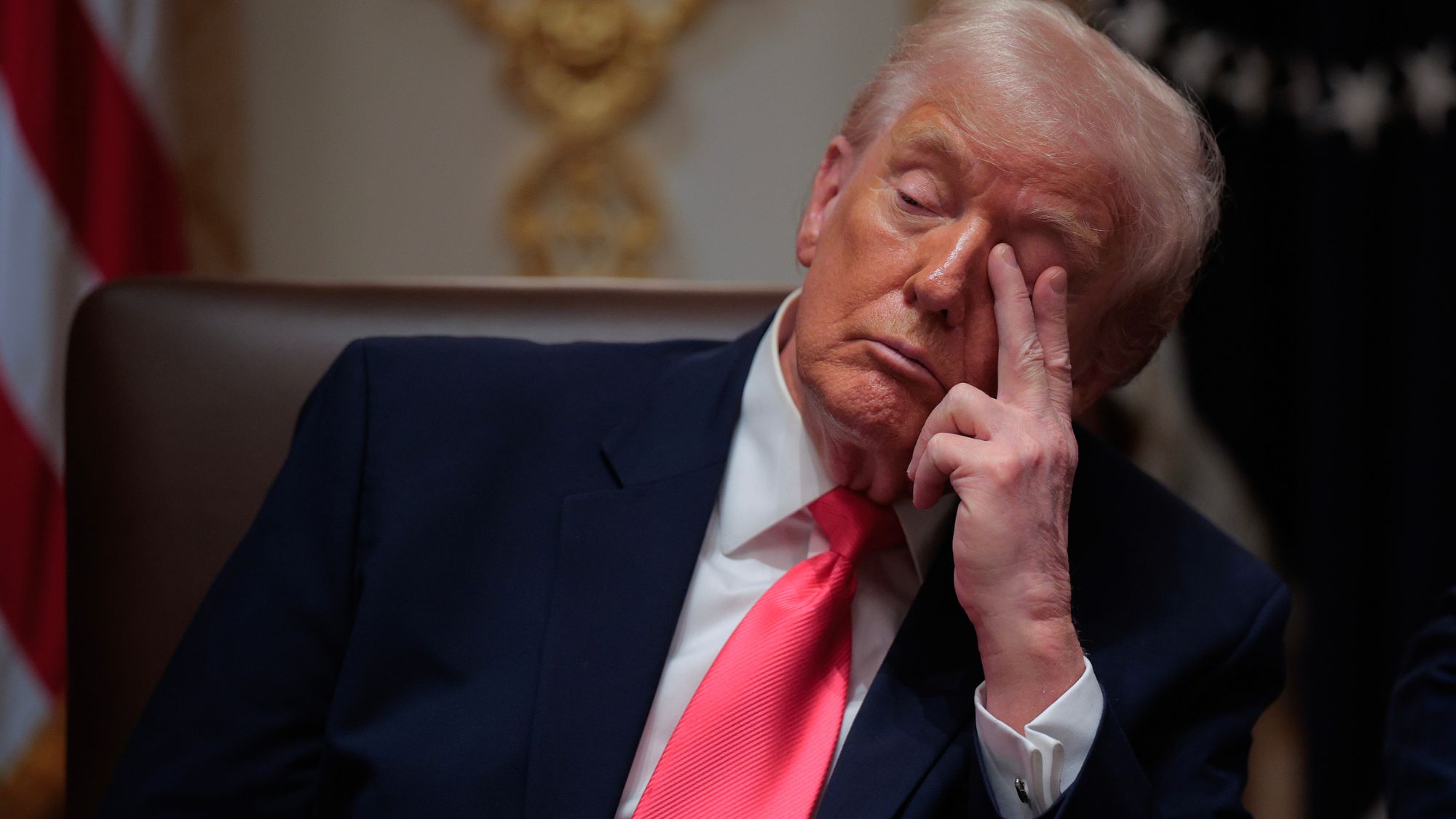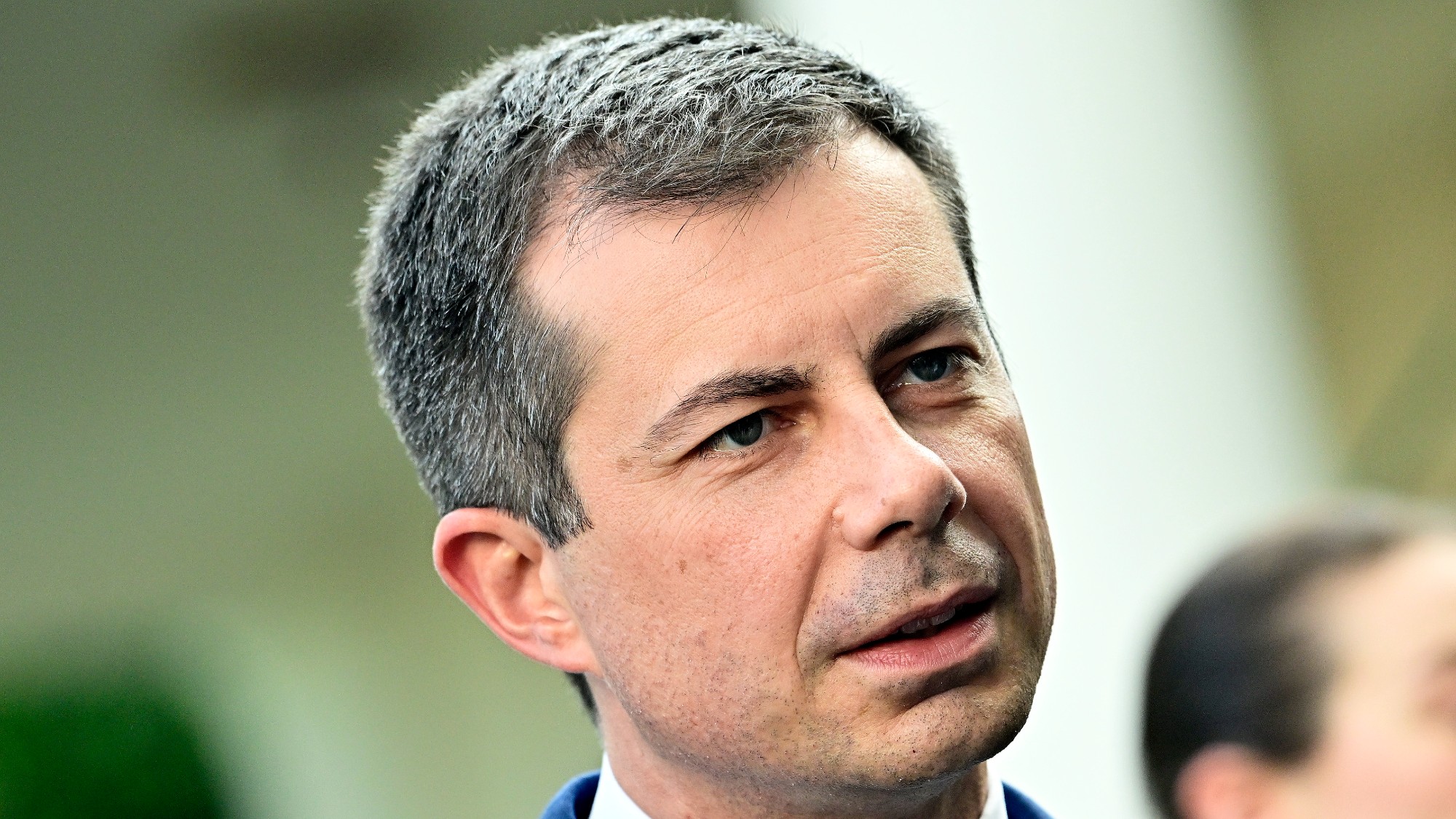The Democratic primary’s generational divide
Can a millennial candidate ride older voters to victory?


A free daily email with the biggest news stories of the day – and the best features from TheWeek.com
You are now subscribed
Your newsletter sign-up was successful
Pete Buttigieg is the youngest candidate in the Democratic presidential primaries, and if elected, he would be the youngest president in history. On the campaign trail he often talks about America's need for "a new generation of leadership" to replace the "failures of the old normal." Yet none of this seems to be very appealing to voters in his own age bracket. Polls have consistently shown that Mayor Pete appeals overwhelmingly to the over-50 crowd.
The sole millennial candidate in the race, then, is a hit with boomers, while the oldest candidate in the race, Senator Bernie Sanders, who is more than twice Buttigieg's age, is the preferred candidate for under-30 voters. This fact, that a 78-year old who recently suffered a health scare is far more popular with millennials than the 37-year-old candidate with boyish looks, tells us a lot about the generational divide that has consumed the Democratic Party in recent years.
On a superficial level it seems somewhat counterintuitive for younger voters to swarm to an elderly white man, but from an ideological perspective it makes perfect sense. Sanders has been the millennial favorite since 2016, and the Vermont senator's calls for Medicare-for-all, free college, and aggressive taxation, among other plans, are far more in tune with the younger generation's political attitudes and beliefs than any other candidate in the race. And his record of consistency over the past 50 years only reinforces his appeal. A recent Economist/YouGov poll found that 57 percent of under-30 primary voters are considering voting for Sanders, while 34 percent say he is their first choice (the highest of any of the Democratic candidates). On the other hand, just 21 percent of voters over 65 are considering a vote for Sanders, and a mere 3 percent of these voters support him as their first choice.
The Week
Escape your echo chamber. Get the facts behind the news, plus analysis from multiple perspectives.

Sign up for The Week's Free Newsletters
From our morning news briefing to a weekly Good News Newsletter, get the best of The Week delivered directly to your inbox.
From our morning news briefing to a weekly Good News Newsletter, get the best of The Week delivered directly to your inbox.
Buttigieg, by contrast, is far closer in his political orientation to the older liberals who have spent most of their adult life in the neoliberal era. For all of Mayor Pete's talk about how we can't return to the "old normal," he hasn't articulated how he would be any different from previous Democratic administrations, and has flatly rejected some of the more bold and progressive plans currently gaining traction in the Democratic Party (and supported by candidates like Sanders and Sen. Elizabeth Warren). Instead, he has increasingly presented himself as the centrist alternative to Joe Biden, effectively promoting the same message as the former vice president, but with a fresh new face. This has made him appealing to older voters, but not with millennials or Gen-Z voters. The same poll found that just 22 percent of 18-29 year old voters are considering voting for Buttigieg, while nearly 50 percent of voters over 65 are considering the mayor (additionally, 12 percent of over-65 voters have Buttigieg as their first choice, compared to 7 percent of 18-29 year olds).
It is a truism that voters generally become more conservative and antipathetic to change as they age, and for many older liberals the past few years of chaos in Washington have made them long for the relative stability of the Clinton and Obama eras. However, for younger voters who never experienced the benefits of the previous status quo, coming of age during the Great Recession, Trump's election seems to have had the opposite effect, making them more radical and hungry for systemic change.
Buttigieg's "youth and optimism," ABC News recently reported, "is winning over older Iowans," but what really seems to attract older voters is the fact that Buttigieg emits a youthful energy while putting forth a very conservative message. Joe Biden's age, by comparison, seems to match his conservative politics, which come across as stale and outdated (questions about his cognitive health certainly don't help). Symbolically, then, Mayor Pete provides a youthful veneer to an ideology and a form of politics that is long past its expiration date — which many millennials seem to see right through.
For many of Buttigieg's older supporters, he seems to induce a vague kind of nostalgia, with persistent comparisons to John F. Kennedy and Barack Obama. Buttigieg, they say, will unify the country and bring back a bipartisan spirit that has been lost. And like Kennedy and Obama, President Buttigieg would represent another symbolic first as the first gay president. As HuffPost put it earlier this month, he is trying to "cultivate the kinds of voters who remain enamored of the former president's eloquence and sunny disposition."
A free daily email with the biggest news stories of the day – and the best features from TheWeek.com
Young people, however, enthusiastically supported Obama a decade ago not because of his sunny disposition, but because he ran on transforming Washington, and appeared to represent a new kind of politics. Buttigieg isn't running as Obama did in 2008; rather, he is running as Obama governed — and as the Obama who recently cautioned Democrats not to listen to the "left-leaning" activist wing in the party and to be "rooted in reality." "The average American doesn't think we have to completely tear down the system and remake it," said the former president, echoing the narratives of Buttigieg and Biden.
If anyone needed proof that the "Ok Boomer" meme isn't so much about age but mentality, then the divide between Sanders and Buttigieg shows it. The millennial mayor from Indiana is far more of a "boomer" in spirit than the septuagenarian senator from Vermont, who has been consistently radical throughout his career (long before it was politically expedient). Meanwhile, millennials and Gen-Zers seem to have lost patience for the symbolic politics of hope.
When recently confronted about taking money from billionaires and Wall Street, Buttigieg defended himself by stating that the same criticisms had previously been leveled against Obama, "If you think about with respect to Wall Street, [Obama] delivered the strongest regulations and accountability that there had been there in a generation."
For young voters who desire radical change, this tells them all they need to know about Mayor Pete.
Want more essential commentary and analysis like this delivered straight to your inbox? Sign up for The Week's "Today's best articles" newsletter here.
Conor Lynch is a freelance journalist living in New York City. He has written for The New Republic, Salon, and Alternet.
-
 Health insurance: Premiums soar as ACA subsidies end
Health insurance: Premiums soar as ACA subsidies endFeature 1.4 million people have dropped coverage
-
 Anthropic: AI triggers the ‘SaaSpocalypse’
Anthropic: AI triggers the ‘SaaSpocalypse’Feature A grim reaper for software services?
-
 NIH director Bhattacharya tapped as acting CDC head
NIH director Bhattacharya tapped as acting CDC headSpeed Read Jay Bhattacharya, a critic of the CDC’s Covid-19 response, will now lead the Centers for Disease Control and Prevention
-
 The billionaires’ wealth tax: a catastrophe for California?
The billionaires’ wealth tax: a catastrophe for California?Talking Point Peter Thiel and Larry Page preparing to change state residency
-
 Bari Weiss’ ‘60 Minutes’ scandal is about more than one report
Bari Weiss’ ‘60 Minutes’ scandal is about more than one reportIN THE SPOTLIGHT By blocking an approved segment on a controversial prison holding US deportees in El Salvador, the editor-in-chief of CBS News has become the main story
-
 Trump’s poll collapse: can he stop the slide?
Trump’s poll collapse: can he stop the slide?Talking Point President who promised to ease cost-of-living has found that US economic woes can’t be solved ‘via executive fiat’
-
 Has Zohran Mamdani shown the Democrats how to win again?
Has Zohran Mamdani shown the Democrats how to win again?Today’s Big Question New York City mayoral election touted as victory for left-wing populists but moderate centrist wins elsewhere present more complex path for Democratic Party
-
 Millions turn out for anti-Trump ‘No Kings’ rallies
Millions turn out for anti-Trump ‘No Kings’ ralliesSpeed Read An estimated 7 million people participated, 2 million more than at the first ‘No Kings’ protest in June
-
 Ghislaine Maxwell: angling for a Trump pardon
Ghislaine Maxwell: angling for a Trump pardonTalking Point Convicted sex trafficker's testimony could shed new light on president's links to Jeffrey Epstein
-
 The last words and final moments of 40 presidents
The last words and final moments of 40 presidentsThe Explainer Some are eloquent quotes worthy of the holders of the highest office in the nation, and others... aren't
-
 13 potential 2028 presidential candidates for both major parties
13 potential 2028 presidential candidates for both major partiesIn Depth A rare open primary for both parties has a large number of people considering a run for president
